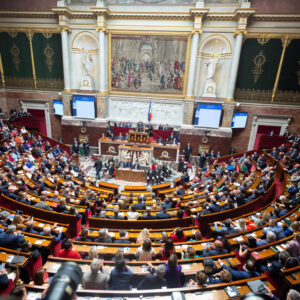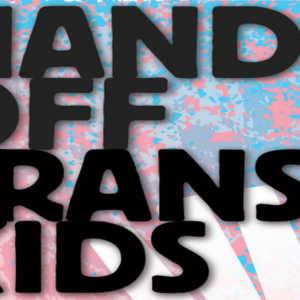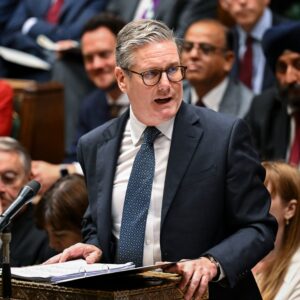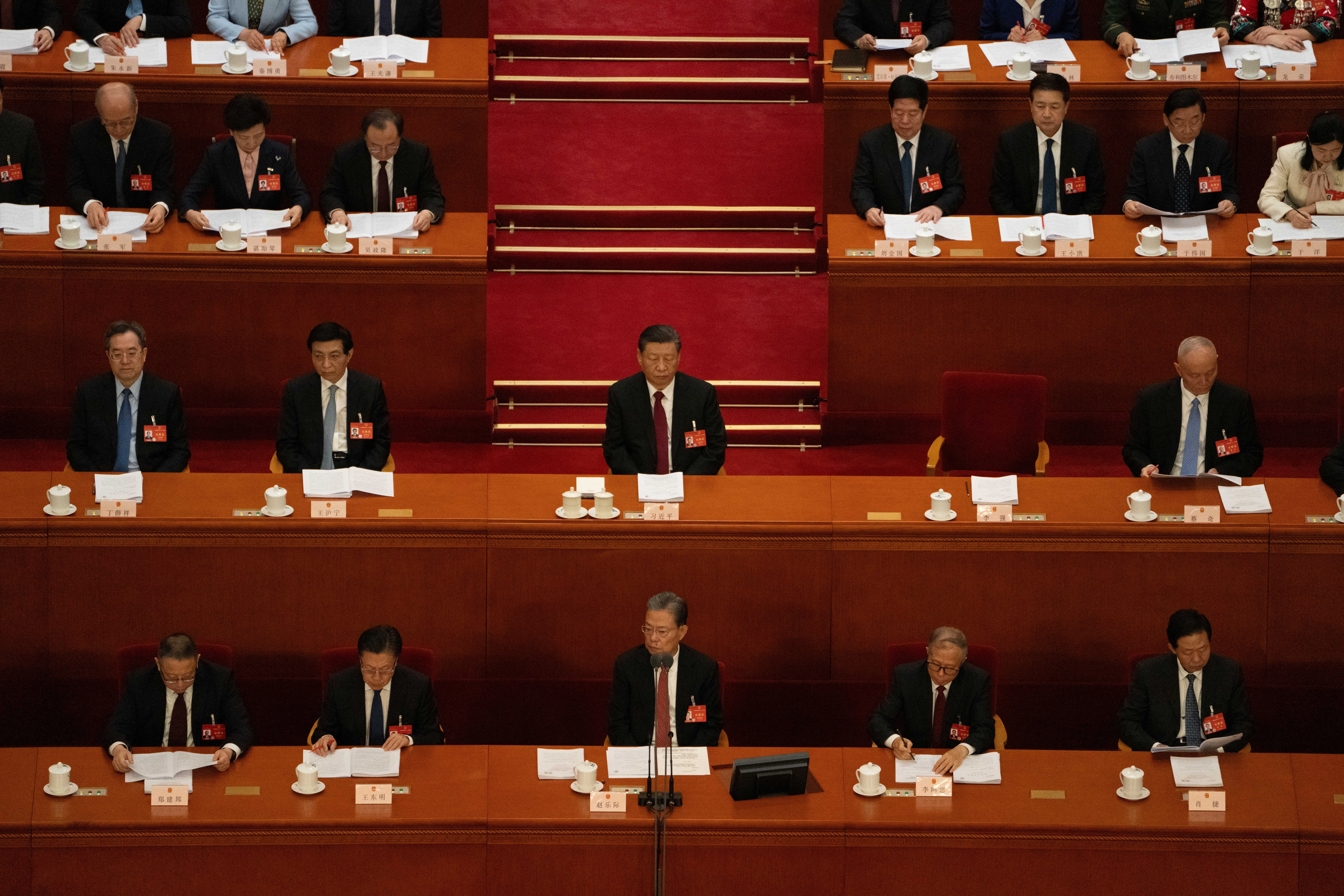Source >> Posle
Hitler’s rise to power forced many scientists, politicians, philosophers, and others to leave Germany. Theodor Adorno and other members of the Frankfurt School, and affiliated intellectuals like Hannah Arendt, devoted most of their work to understanding fascism — a social and political phenomenon that destroyed and damaged the lives of tens of millions of people around the world.
It is indicative that the propaganda that seeks to explain the Russian invasion as a “fight against fascism” completely ignores this legacy. In fact, “fascism” and “Nazism” are empty labels that the Kremlin applies to anyone who disagrees with its policies. Ukrainians, Americans, LGBTQ+ people, émigré artists, and opposition politicians are all called “fascists.” I suspect that the content of present-day fascism, including that found in Ukraine, escapes most Russians. I would like to ask those who force schoolchildren to line up in a “Z” to Shaman’s song “I am Russian”: What, in fact, is wrong with fascist regimes? If fascism is just hatred of Russians, then Hitler was only partly fascist. And was Mussolini a fascist at all?
Wagner PMC’s official slogan “Blood, Honor, Homeland, Courage,” (“Blut und Ehre” was one of the famous slogans of the German SS) doesn’t produce any doubts in the Russian TV audience about Yevgeny Prigozhin’s sincere commitment to fighting Nazism. Ironically, the logos, slogans, and arguments used by Russia’s anti-fascist propaganda are extremely similar to everything Adorno describes in his analysis of fascism. Indeed, the incredible similarity to Adorno’s model of fascist propaganda cannot be explained by the Presidential Administration’s use of the Frankfurt School as a manual. Instead, the logic of fascism explains the similarities between today’s Russia and Nazi Germany: its deep structural connection to consumer society and modern capitalism. If fascists are not born but created, is it possible to turn into a fascist and not even know it?
To share the joy of my own discovery, I will cite a few of Adorno’s theses from The Psychological Technique of Martin Luther Thomas’s Radio Addresses (2000). Written in the mid-1940s in preparation for his study the Authoritarian Personality (1950), Adorno’s notes center on the structure of fascist propaganda. Adorno’s focus, however, was not Hitler, as one might expect, but Martin Luther Thomas, a far-right Christian preacher on California radio. The founder and leader of the Christian American Crusade, Thomas denounced secret Communists and Soviet “agents” in his broadcasts and called for the protection of the true Christian faith and values, all while constantly demanding donations to fund his activities.
There was one incident (though there were likely others) where Thomas’s denunciations caused a scandal: James Hyde, a Los Angeles City Councilman, published an open letter exposing Thomas, City Prosecutor Charles P. Johnson and Mayor John Porter for racketeering, gambling, nepotism and bootlegging. Although Thomas is today remembered primarily in connection with Adorno’s book, the far-right and overtly fascist movements were a common feature of the U.S. political landscape in the 1930-1940s. In 1933, the Friends of the New Germany Club was founded in Chicago, proclaiming its direct lineage to the NSDAP and renamed the German-American Bund in 1936. The Catholic radio preacher Charles Coughlin was a prominent figure on the American far-right scene: he filled his radio programs with isolationist, anti-Bolshevik and anti-Semitic rhetoric. His radio sermons were incredibly popular with a weekly audience of up to 30 million people. Fleeing anti-Semitism and the Nazi regime, Adorno was probably astonished to discover similar phenomena in a country at war with Germany.
The similarities between contemporary Russian propaganda and the propaganda machine described by Adorno are no less striking for us today. I will refer to the characteristics of the radio agitator or the fascist leader Adorno analyzed in his book’s opening chapters. I invite the reader to play the “compare two pictures” game.
Lone wolf
Today, just when individual agency has very little impact on society and politics, the media’s focus on individuals and the role of personality has increased tremendously. Contemporary media and social networks are good examples of this tendency. Consumers are pleased to be addressed by people with their personal stories and experiences rather than impersonal and anonymous experts. Influencers help companies sell their products. Viewers can follow and even participate in their lives. YouTube bloggers and Ticktockers are icons for millions.
Similar forms of audience interaction are also actively used in creating the image of an authoritarian leader. “The more impersonal our order becomes, the more important personality becomes as an ideology,” writes Adorno. By emphasizing his human qualities, including weakness and vulnerability, the fascist leader makes it possible to build a bridge between his audience and himself. Thus Thomas, according to Adorno, can discuss “his wife’s illness or his financial difficulties.” This, however, does not undermine his popularity. On the contrary, it allows him to arouse sympathy among his audience. Moreover, by supporting the leader and sympathizing with his problems, the average citizen internally relates to him, forms a bond with him, and acquires a part of his omnipotence. “By referring to himself in an ambivalent way as both human and superhuman, weak and strong, close and far, the fascist leader supplies a model for the very attitude that he intends to affirm in his audience.”
Vladimir Putin illustrates this thesis quite clearly. Russia’s president also combines the traits of an ordinary, quite vulnerable man with those of a superhuman. In a 2014 interview with Andrei Vandenko, Putin says that he exercises regularly (superhuman) but had to “give it up on business trips. You don’t get enough sleep when the flights are long and the time differences are significant” (ordinary man). Putin’s emphasis on his masculinity, naked torso, flying with birds and diving into the deep underwater abysses are his recognizable trademarks. One could even speculate about how this obsession with his own body and health works against the backdrop of the chronic underfunding of the Russian healthcare system. The Russian president’s health seems to be ensured by his personal discipline rather than by a huge team of doctors, athletic coaches and shamans. Citizens should pick up on this message: getting sick is your own fault.
Yet the superhuman Putin always emphasizes his ordinary, human, and humble origins. For example, at the last meeting of the Valdai Club, Putin noted that he grew up in a simple working-class family and therefore has a particularly good sense of “what matters to the average person”: “My father was a worker. He worked as a foreman after graduating from technical school. My mother had no education, not even a high school diploma. She was just a worker. She worked as a nurse in a hospital and whatever else she did. She also worked as a janitor and a caretaker.”
However, along with this intimacy, the leader must constantly emphasize his solitude and even his loneliness, creating an insurmountable distance between him and the citizenry. If Putin does not talk about being unique himself and, consequently, lonely, there are always people around him to point this out. In the aforementioned interview, Vandenko insists that the country’s fate depends on the president’s health. He then mentions the theme of loneliness: “Correct me if I’m wrong, but I think a person in a post like yours is, by definition, lonely. That is his fate.” Putin agrees. Indeed, he is lonely, but he doesn’t feel that way: “You know, I don’t feel lonely. However strange it may sound. Maybe I don’t have much communication or contact, even with people who are considered my friends and who are now under sanctions. That’s true. But loneliness, it seems to me, is different. It’s not a lack of contact with others but an inner state of mind. And I don’t have that feeling of loneliness in my soul.” One could infer that Putin does not feel lonely because he constantly thinks about his country and serving its people. The priest Tikhon Shevkunov (often called the Russian dictator’s longtime spiritual mentor) also talks about Putin’s loneliness as a burden unique to serving the state.
Putin’s loneliness guarantees his integrity. According to propaganda, unlike in the West, where lobbies and big business rule everything in politics, Russia has no such influence thanks to Putin and his ability to limit personal communication. This is why the sanctions imposed on Russian oligarchs have not had the desired effect. “I believe we have largely put an end to the so-called oligarchy. After all, what is it? Money that influences the government. In Russia, I can say with certainty, there is no such thing. No oligarchic structures take power. And there is no influence on government decisions to serve oligarchs’ interests. This also fully applies to the people you mentioned. All of them are rich people. They got rich a long time ago.” Putin’s friendship comes at a high price. His friends are constantly persecuted. Yet, their loyalty to the leader “is to their credit” despite the persecution. “It makes me proud to have such friends whom our opponents — let’s call them that — consider guilty. . . It is to my friends’ credit. They had nothing to do with what happened, yet they’ve proved worthy of respect.”
Admittedly, Putin’s associates have no influence whatsoever on his decisions and cannot claim to. The ordinary citizen is invited to take a similar stance: to support Putin’s decisions, however unpopular or even criminal, is in the hope that he “does not leave his people behind.”
Workaholic
The loneliness of the fascist leader is closely connected with his superhuman work ethic: “… the workload is such that I cannot have a wide circle of friends.” This remark immediately brings to mind one of Putin’s most famous quotes, describing his first two presidential terms: “During these eight years, I have been toiling like a galley slave from morning till night, and doing it with the utmost dedication.” The already mentioned physical activities are crucial for the Russian President to ensure his healthy body and spirit to perform the work that mere mortals cannot do. The Russian President’s love of sports has been written about many times, and Putin himself never fails to emphasize this. In a 2020 interview, he notes that judo is his way of life. “For me, judo is not just a sport. Judo fosters willpower, a respectful attitude toward others, composure, the ability to take a punch and come out of difficult situations with dignity.” In addition to judo, the president skis, swims, goes hunting and loses as much as two kilos in every hockey game.
Adorno aptly observes that indefatigability also characterizes the fascist leader’s main enemies. In a 2014 interview, Putin likened his opponents to vigilant bacteria: “You know, as soon as the state weakens in key areas, centrifugal forces will immediately arise and pull it apart. It’s just like in the body: if the immune system weakens a bit, you get the flu. They sit inside. These bacilli, bacteria, are always there. But when your body is strong, you can always suppress the flu. You must exercise!” Such a struggle means constant vigilance, which goes against the need for rest and sleep.
As Adorno explains: “Under fascism, psychologically, no one is allowed to sleep: one favorite method authoritarian governments use to torture their victims is to interrupt their sleep hourly until their nerves completely break. The fascist hatred of sleep […] is reflected by the fascist leader’s emphasis on his being indefatigable himself.” However, this mechanism does not mean that citizens should finally wake up and try to figure out what is going on. Rather, their certainty that they are awake is because their leader is awake. This creates the ground for the authorities to justify any action, even those that run counter to earlier promises. After all, the vigilant leader always knows better! However, the call for superhuman physical and moral effort also overlaps with the realities of present-day capitalism. For example, in his book, 24/7: Late Capitalism and the Ends of Sleep, art critic Jonathan Crary describes the impossible demand imposed by mass consumption, media space and the labor market: “However, since no moment, place, or situation now exists in which one cannot shop, consume, or exploit networked resources, there is a relentless incursion of the non-time of 24/7 into every aspect of social or personal life.”
Cynical victim
For Crary, being required by today’s communication capitalism to be constantly plugged in implies continuous surveillance. It is a surveillance that never sleeps as it collects and processes data. In Russia, the state has also decided to give up on sleep. It has made preparations to relentlessly send out electronic conscription papers and mercilessly punish anyone who fails to show up at the enlistment office. Now, the fascist leader’s self-sacrifice is now expected from average citizens. It is not for nothing that the notorious propagandist Vladimir Solovyov mocks people on his TV show lining up at the Russian-Georgian border at Verkhny Lars trying to escape the “partial” mobilization. Solovyev, indignant at Russians hesitance to kill citizens of another country, reproaches draft objectors: “What have you done for your country?”
Citizens must be prepared to sacrifice everything for the state. On the other hand, the state doesn’t have to bother with specifying the goals of the war its citizens are dying for. Adorno points to the special character of fascist sacrifice: it has no particular end except as an end in itself. Sacrifice for the sake of sacrifice. The state for the sake of the state. War for the sake of war. “The older bourgeois had to be indefatigable in order to secure a chance of winning the pity of the hidden God and of making a fortune for his family. The fascist is taught to be indefatigable for the sake of indefatigability itself. Self-denial, in this as in all other respects, is interpreted in terms of an end rather than a means. It is regarded as the very same compensation that it forbids. It would be essential for any counterpropaganda […] to point out the irrational, fetishistic and absurd characteristics of all the ‘sacrifices’ demanded by fascist propaganda.”
A significant difference between today’s situation in Russia and that Adorno observed in the 1930s is that the very attitude toward death and sacrifice has become cynical and calculated. Many remember Margarita Simonyan’s remark on the show Life and Fate: “Death is inevitable; death awaits us all. And it is absolutely unclear whether it is better to die from some serious illness or to die for a just and important cause.” Solovyov has similar arguments for dying in the “special military operation”: “Life is greatly overrated. Why fear the inevitable? Especially if we’re going to heaven!” Archpriest Andrei Tkachev made perhaps the most eloquent and contemptuous statement to his fellow citizens: “People die like pigs, choking on their own vomit. They eat and drink, fall under the table, puke and choke on their own vomit. So this is how they die. Isn’t it better to die for your homeland, like a hero? Like a man? With a prayer on your lips…” At a meeting with soldiers’ mothers, Putin’s response to a woman who lost her son in the war also expressed an arrogant attitude toward the lives of ordinary Russians, who according to statistics, die on the road or from vodka, or, in Putin’s words, do not even live at all. “About 30,000 people die annually in traffic accidents. Roughly the same number die from alcohol abuse… It is unclear whether some people have even lived at all. And if they die — from vodka or something else — no one would even notice […] it also slips through the cracks somehow: whether or not the person lived. Don’t you understand that your son lived? His goal was reached. His life was meaningful. He lived it for the purpose he aspired to.” Putin’s bewildering idea can be summarized as follows: in order to live a real life, you must die in the war, not simply to pass away, but to die “for a purpose.”
Adorno connects the leader’s sacrifice and that of his followers to the Son or the Messenger in Christianity. And fascism appropriates this connection. This observation is interesting because we tend to associate the leader with the Father of the great national family that determines the course of state politics. It is no secret that Vladimir Putin’s family life does not exactly coincide with those “traditional family values” that he seeks to defend. Not calling his daughters by their names, divorced, and spending a lot of money on wooing his mistresses, Putin seems to have drifted further and further away from his role as the Father during his twenty-three years reign. As Son and Messenger, Putin does not do what he wants but what the country demands of him: “I have already said that I feel that I am part of Russia. I don’t just love her. I guess everyone can say they love their motherland. We all love it, but I really feel a part of the people and I cannot imagine how to live outside Russia even for a moment.” At the same time, the Russian president does not make the fateful decisions of his own free will but is compelled to do so by circumstances. Crimea had to be annexed in 2014 because the Russian world demanded it. The retirement age had to be raised in 2018 because the economy demanded it. The invasion of Ukraine had to happen in 2022 because NATO’s eastward expansion demanded it. “They didn’t give us a chance to do otherwise,” billboards picturing Putin read as early as February 25, 2022.
In a recent interview, bishop Tikhon Shevkunov (often referred to as Putin’s confessor) speaks of Putin’s decision to invade a neighboring country as the fulfillment of a “prophecy.” Putin thus acts only as an instrument of fate and bears no personal responsibility for his own actions. His fatalistic, violent god is much closer to paganism than Christianity. Characteristically, Putin understands God primarily as a synonym for fate: “We all live under God, under Allah, under Christ, […] everyone who believes in a higher power. It does not matter what religion he adheres to […] We will all leave this world someday. It is inevitable.” If for conventional Christianity, the victory of life over death is important, for Putin’s religion, death becomes the goal. It manifests the majesty and omnipotence of a severe and vengeful god.
Putin reinforces the image of the Son by constantly emphasizing his affinity with ordinary people. He comes from the grassroots. He does not drink expensive drinks, preferring plain black tea. Or, as propagandist Dmitry Kiselyov put it in a program exposing Navalny’s film about Putin’s palace in Gelendzhik, a palace is “uncool” for the President. Kiselyov emphasized Putin’s ascetic lifestyle: instead of a luxurious vacation, the head of state “may go to the taiga dressed in hiking clothes or go fishing in the middle of nowhere.” And Putin doesn’t need a dressing room, because “he walks around in a suit of the same cut as if he were wearing a uniform. He only has five ties and some simple shirts.” In this image of the leader, Adorno ironizes, the “lack of glamor is glamorized.”
By combining a workaholic, a Messenger son, and an ascetic loner, the fascist leader sets a pattern of behavior for those who support him and imitates the lifestyle of ordinary citizens, many of whom also take fishing vacations and wear inexpensive outfits. “The Agitator who wishes his followers to identify themselves with him and to imitate him present himself not only as their superior, as a strong man but simultaneously as just the opposite. He is as weak as they are; he is the one who needs redemption rather than he who redeems, in short, he is a son subject to paternal authority, dependent on and at the service of something bigger than himself. This greater entity is, however, no longer the Father. It is vague and utterly undefined, but all the stimuli point to its being the collectivity of all the “sons” gatherers around the fascist organization — a collectivity the power of which is supposed to give psychological compensation for the weakness of each component individual.”
Fatalism, fear, and self-destruction
But why all these sacrifices? They are simply to keep things as they are. According to Adorno, the reward for the readiness to suffer and sacrifice for preserving the very social and political model that constantly reproduces conditions of suffering and inequality is “the dubious pleasure of some undefined inner superiority over the rich as well as the discontented.” Yet, it is not solidarity that should relieve the lonely and powerless ordinary citizen, but total submission.
In addition to the figure of the radio preacher, Adorno analyzes the methods of fascist propaganda and its religious motives, but ultimately, the leader is what the totalitarian machine hinges on. “No Putin, no Russia,” this seemingly subservient remark by the Russian State Duma Speaker, Vyacheslav Volodin, cannot be reduced to flattering the president. On the contrary, already in 2014, Volodin perfectly understood how the Russian regime was structured. It relies on the utter arbitrariness and uncontrolled power of Putin and his cronies. It is impossible to say anything about the possible existence of a “Russia without Putin” because the only thing that holds together people utterly devoid of sympathy for the fate of their loved ones and their own fate is the image of a strong president. A president who does everything for them and for the sake of keeping them in front of the television or simply going about their daily routine until the citizens are required to pay their patriotic debt by fighting in another country. Although officially Putin’s source of power is the “multinational people” of Russia, everyone understands that his real power comes from a completely different source: Himself. The people have once already elected their leader, “put their trust in him,” and this “once already” creates a halo of legitimacy.
However, there is nothing specific to Russia in worshiping the leader. Adorno insists that there isn’t even anything “regressive” about such a cult. On the contrary, the magical influence of the term “leader” can largely be explained by the role of advertising in late capitalism. The quality of a product has far less influence on customer choice than the popularity of a brand. For example, Apple products signify a certain status, a refined taste, and endow their owners with prestige. The “leader” brand works the same way. Consumers “attribute to the product a certain value per se, a certain fetish character. This mechanism has become so automatized throughout the buying process of modern life that it can easily be transferred by simple advertising techniques to the political field. The mode of ‘selling an idea’ is not essentially different from the mode of selling a soap or a soft drink.”
While it may be flattering to talk about the unique path of Russia, which produces authoritarian regimes in its flight from freedom, the path chosen by Vladimir Putin and his associates is far from exceptional. There is no point in accusing those who support such a regime of irrationalism or civilizational inferiority. Adorno urges us to see the rationality of this behavior as stemming from the laws of capitalist society, where religion has been replaced by the cult of a given order of things: it can only be as it is, and if something does not exist, then it cannot be. If citizens did not accept this attitude, Russian propaganda with Solovyov, Simonyan and Skabeyeva would never be as effective and Putin would not be president for life. After all, it’s not that people are being deceived. It’s that they have a need for this self-deception to allow them to keep going to work and paying their mortgage while retaining what little peace of mind they have left.
But while the behavior of ordinary citizens is rational, the aims of Putin’s regime are utterly irrational for society as a whole, despite the fact that for the group in power this regime may be the only way to remain in control. Throughout his rule, Putin has rebuked the opposition for not having a positive agenda. But he also has little to offer his supporters. Adorno observes that the fascist “realizes that his solution is no solution, that in the long run it is doomed. Any keen observer could notice this feeling in Nazi Germany before the war broke out.” Instead of an image of the future, Russians are encouraged to look everywhere for enemies and traitors, to remember the efficient manager Stalin and to live in fear that “Ukrainian Nazis” will teach Russian children over the phone how to use gas stoves as explosives.
By terrorizing the population, Russian propaganda appeals to the rational desire of “ordinary Russians” to preserve the little that they have. In this sense, it is not even necessary to refer to any future project. Adorno reveals that this lack of a clear image of the future for fascist leaders is compensated for by the possibility of total destruction. “Annihilation is the psychological substitute for the millennium — a day when the difference between the ego and others, between poor and rich, between powerful and impotent, will be submerged in one great inarticulate unity. If no hope of true solidarity is held out to the masses, they may desperately stick to this negative substitute.”
In Putin’s Russia, the much-desired “historical justice” or “multipolar world” are constantly offered as goals to be reached through death and annihilation. Only the willingness to kill and die is truly real and pure, whereas everything that belongs to life is false and short-lived. But it is important to remember that the pursuit of the universal is not inherently destructive. Thus, the only way to resist destruction is through an alternative universalist project based on the solidarity of the oppressed and the desire to affirm life rather than on a sado-masochistic urge to (self-) destruction.
Art (47) Book Review (102) Books (106) Capitalism (64) China (74) Climate Emergency (97) Conservative Government (90) Conservative Party (45) COVID-19 (43) Economics (36) EcoSocialism (48) Elections (75) Europe (44) Fascism (52) Film (47) Film Review (60) France (66) Gaza (52) Imperialism (95) Israel (103) Italy (42) Keir Starmer (49) Labour Party (108) Long Read (38) Marxism (45) Palestine (133) pandemic (78) Protest (137) Russia (322) Solidarity (123) Statement (44) Trade Unionism (132) Ukraine (324) United States of America (120) War (349)
The Anti*Capitalist Resistance Editorial Board may not always agree with all of the content we repost but feel it is important to give left voices a platform and develop a space for comradely debate and disagreement.
Latest Articles
- France after the elections: How should the radical left act?In the wake of the National Assembly’s dissolution and new parliamentary configuration, La France Insoumise (LFI) should adopt a clear stance of radical opposition, emphasizing its commitment to anticapitalist principles and democratic reforms while avoiding any compromise with the existing government unless it secures absolute majority support from the populace, argues Gilbert Achcar.
- Why Socialists Oppose the Two‑Child Welfare CapIn this article, Simon Hannah explores why socialists vehemently oppose the government’s two-child welfare cap, arguing that it stems from austerity measures and reactionary views on the poor.
- Hands off Trans KidsA pamphlet from Anti*Capitalist Resistance.
- Two Child Benefit RevoltDave Kellaway responds to the revolt by Labour MPs and others to the Labour government keeping the Tories’ hated two child benefit cap.
- The beginning of the end of China’s rise?This is the second interview in a two-part series. The first interview (“Opposing US militarisation in the Asia-Pacific should not mean remaining silent on China’s emerging imperialism“) covered the nature of China’s state, its status in the world today, and implications for peace and solidarity activism.






